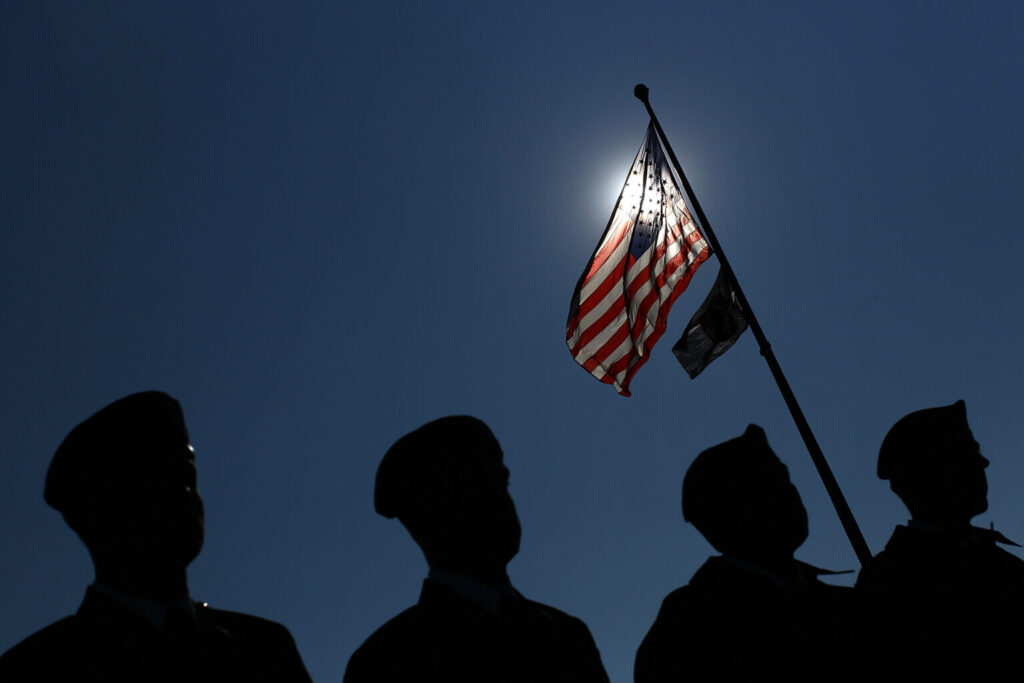
Ahead of Veterans Day, Biden administration officials said Friday the Department of Veterans Affairs will expand health care coverage for certain groups of veterans and their families and create new programs meant to make care more accessible.
The VA will make coverage of certain toxic burn pit-related conditions available sooner than anticipated. Family members of veterans who served at North Carolina’s Marine Corps Base Camp Lejeune from 1953-1987 will be eligible to have the costs of treating Parkinson’s disease. And all World War II veterans will be eligible for no-cost health care, including at nursing homes, the department said in a series of news releases.
The administration will also create a new graduate medical education program to help expand health care availability for veterans in rural, tribal and other underserved communities, the department said. And the VA will spend $5 million on an advertising campaign aimed at having more veterans sign up for services.
“As we head into Veterans Day, we’re reminded of the fundamental promise that our country makes to anyone who signs up to serve in the military: If you fight for us, we’ll fight for you,” Veterans Affairs Deputy Secretary Tanya Bradsher told reporters on a Thursday call in advance of the announcements.
The administration announced five changes meant to expand veterans’ benefits.
The VA will speed up coverage for burn pit exposure that was part of a bipartisan law passed last year.
The law, which provides health care benefits to veterans exposed to toxic chemicals from burn pits in Iraq and Afghanistan and certain other veterans, was written to be phased in over no more than 10 years.
But President Joe Biden is directing the VA to make all affected veterans eligible for expanded benefits by early next year, according to a White House fact sheet.
The Camp Lejeune Family Member Program will be expanded to cover Parkinson’s disease. The program, which covers a host of conditions related to the contaminated drinking water at the base, did not previously include Parkinson’s.
Veterans of World War II who served anytime from Dec. 7, 1941, to the end of 1946, are entitled to no-cost VA health care, meaning no co-pays or monthly premiums, the department said. That includes care at nursing homes.
To expand availability, the department is also creating a pilot program to reimburse residents and residency programs, including those outside of VA facilities, that serve veteran patients. The program would fund 100 physicians in rural, tribal and underserved communities, according to a VA news release.
And to encourage veterans to take advantage of their benefits, the department is planning a national advertising campaign focused on “some of the most tangible, cost-saving benefits” veterans are entitled to, according to the VA.
The multimedia campaign will tout the low-cost or no-cost health care, education, home loan and memorial service programs, the VA said.
